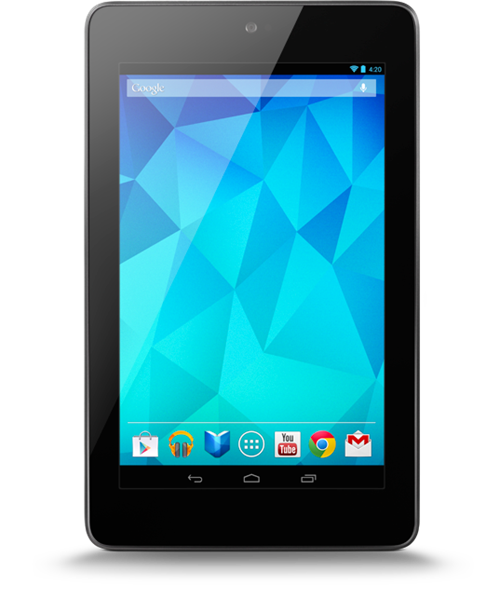Google’s Nexus 7, built in collaboration with consumer electronics giant ASUS, has been a great success, having almost reached six million units sold since its release last Summer. Citing the usual sources familiar with upstream supply chains, the famously hit-and-miss Digitimes seems to think Google will team up with the very same manufacturing partner to bring a second-generation iteration of the popular slate, complete with a thinner bezel, full HD 1080p display, along with the Jelly Bean operating system.
The original Nexus 7 was, of course, the very first device to ship with Android Jelly Bean (4.1), and represented a turned corner for the Big G’s mobile operating system. Prior to Jelly Bean, the smartphone and tablet firmware was seen as inferior to its main rival – iOS – in terms of seamlessness and ease of use. However, ‘Project Butter’ has helped to bring Android right up to speed with the rest of the market, and with the second-gen Nexus 7 said be announcing in May, the world is certainly ready for a faster, sharper, and slicker version.
Sales of Nexus 7s are expected to pass the 10 million unit mark this year, and with the $249 (16GB) model being the more popular of the two, it shows consumers don’t mind paying a little extra for additional storage space. The device launched in 8 GB and 16GB configurations last year, with the latter selling out its initial stock much quicker than anticipated. Google has since added a 32GB option to the fold, and hopefully next time around, production on the larger storage options will be ramped up ahead of launch.
The sources believe the upcoming 7-inch model will retail at the same $199 – 249 bracket, but the new features will certainly entice many consumers to upgrade. The current Nexus 7 already boasts a quad-core processor, and having owned one myself, I must attest to its speed and performance credentials. In all honesty, the processor doesn’t really need improving (although likely will be), but the 1080p implementation will certainly be welcome (even though the display is very sharp as is).
One thing I do hope for in the next-gen, besides a rear-facing camera, is improved build quality. It’s the only real let-down, and although it perhaps is to be expected with a device as cheap as the Nexus 7 is, it does take the sheen off an otherwise fantastic little budget tablet.
You can follow us on Twitter, add us to your circle on Google+ or like our Facebook page to keep yourself updated on all the latest from Microsoft, Google, Apple and the Web.

